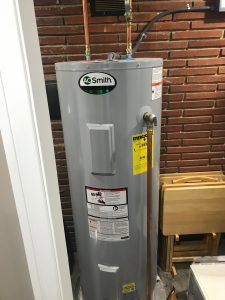Managing Common Heater Issues
Managing Common Heater Issues
Blog Article
In this article below you might get some helpful facts regarding Common Problems with Tank Water Heaters.

Think of starting your day without your routine hot shower. That currently establishes an inadequate tone for the remainder of your day.
Every house needs a dependable water heater, yet just a couple of understand how to take care of one. One simple way to maintain your water heater in top form is to check for mistakes on a regular basis and repair them as soon as they show up.
Keep in mind to switch off your water heater prior to sniffing about for faults. These are the hot water heater mistakes you are probably to encounter.
Water as well warm or too chilly
Every hot water heater has a thermostat that establishes exactly how warm the water gets. If the water coming into your home is also hot regardless of setting a practical optimum temperature level, your thermostat may be damaged.
On the other hand, as well cold water may be because of a stopped working thermostat, a busted circuit, or improper gas flow. For instance, if you make use of a gas water heater with a damaged pilot burner, you would certainly get cold water, even if the thermostat remains in best problem. For electrical heating units, a blown fuse may be the perpetrator.
Not nearly enough warm water
Water heaters come in several dimensions, relying on your warm water needs. If you run out of warm water prior to everybody has had a bath, your hot water heater is as well small for your family size. You need to take into consideration setting up a larger hot water heater tank or opting for a tankless hot water heater, which takes up much less room as well as is more long lasting.
Strange noises
There go to least five sort of noises you can learn through a water heater, but the most common interpretation is that it's time for the hot water heater to retire.
First off, you should recognize with the typical seems a hot water heater makes. An electrical heating system may sound different from a gas-powered one.
Popping or banging noises typically suggest there is a slab of sediment in your containers, and it's time to clean it out. On the other hand, whistling or hissing audios may merely be your valves letting some pressure off.
Water leaks
Leaks could originate from pipelines, water links, shutoffs, or in the worst-case situation, the storage tank itself. In time, water will corrode the container, as well as find its way out. If this takes place, you need to change your water heater as soon as possible.
However, prior to your change your entire container, make sure that all pipelines are in area and that each shutoff works completely. If you still need aid identifying a leak, call your plumber.
Rust-colored water
Rust-colored water suggests one of your hot water heater components is rusted. Maybe the anode pole, or the container itself. Your plumber will have the ability to recognize which it is.
Warm water
Despite how high you established the thermostat, you will not obtain any kind of warm water out of a heater well past its prime. A water heater's efficiency may reduce with time.
You will also get lukewarm water if your pipelines have a cross link. This suggests that when you activate a faucet, hot water from the heating system streams in along with regular, cold water. A cross connection is very easy to area. If your hot water faucets still pursue closing the water heater shutoffs, you have a cross connection.
Discoloured Water
Rust is a significant source of filthy or discoloured water. Corrosion within the water tank or a stopping working anode rod might create this discolouration. The anode pole secures the tank from rusting on the within and also must be inspected annual. Without a rod or an appropriately functioning anode rod, the warm water quickly corrodes inside the container. Call an expert hot water heater technician to identify if replacing the anode rod will fix the problem; if not, replace your water heater.
Conclusion
Preferably, your hot water heater can last one decade prior to you require a modification. Nonetheless, after the 10-year mark, you might experience any of these faults more frequently. At this point, you should include a brand-new water heater to your budget plan.
How To Troubleshoot 3 Common Water Heater Problems in Twin Cities
The Water Heater Is Leaking
A leaky cold water inlet valve A loose pipe fitting A leaky temperature and pressure relief valve A corroded anode rod A cracked tank Turn Off Your Water Heater:
Shut off your gas water heater by turning the gas valve on the unit to the “OFF” position. Shut off your electric water by switching its power off at your electrical panel. Look for a two-pole breaker labeled “water heater” and turn it to the “OFF” position. Move the ball valve connected to the water heater to be perpendicular to the piping at a 90° angle. Look for the Leak:
Depending on whether the water is coming from the tank's top or bottom, you’ll want to look for the leak in different locations.
If the leak comes from the top of the tank, carefully look for water escaping from the cold water inlet valve or loose pipe fittings. Rusted hot and cold water valves can have loose connections with the tank, with water leaking out of them.
https://mspplumbingheatingair.com/blog/how-to-troubleshoot-3-common-water-heater-problems
We were guided to that article on Water Heaters Problems from someone on another web address. Those who liked our article please don't forget to pass it around. Bless you for your time. Don't hesitate to stop by our website back soon.
Additional Information Report this page